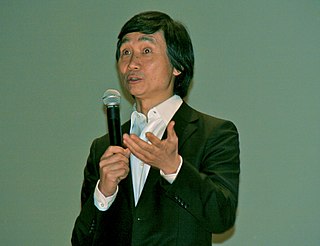A Quote by Gray Scott
These machines are going to reflect our species and our evolutionary process. Everything we are will end up in these artificially intelligent machines no matter what we do.
Related Quotes
Although we will hate and fight the machines, we will be supplanted anyway, and rightly so, for the intelligent machines to which we will give birth may, better than we, carry on the striving toward the goal of understanding and using the Universe, climbing to heights we ourselves could never aspire to.
Late twentieth-century machines have made thoroughly ambiguous the difference between natural and artificial, mind and body, self-developing and externally designed, and many other distinctions that used to apply to organisms and machines. Our machines are disturbingly lively, and we ourselves frighteningly inert.
By the time of the Singularity, there won't be a distinction between humans and technology. This is not because humans will have become what we think of as machines today, but rather machines will have progressed to be like humans and beyond. Technology will be the metaphorical opposable thumb that enables our next step in evolution.
Dialogue is really aimed at going into the whole thought process and changing the way the thought process occurs collectively. We haven't really paid much attention to thought as a process. We have engaged in thoughts, put we have only paid attention to the content, not to the process. Why does thought require attention? Everything requires attention, really. If we ran machines without paying attention to them, they would break down. Our thought, too, is a process, and it requires attention, otherwise its going to go wrong.








































